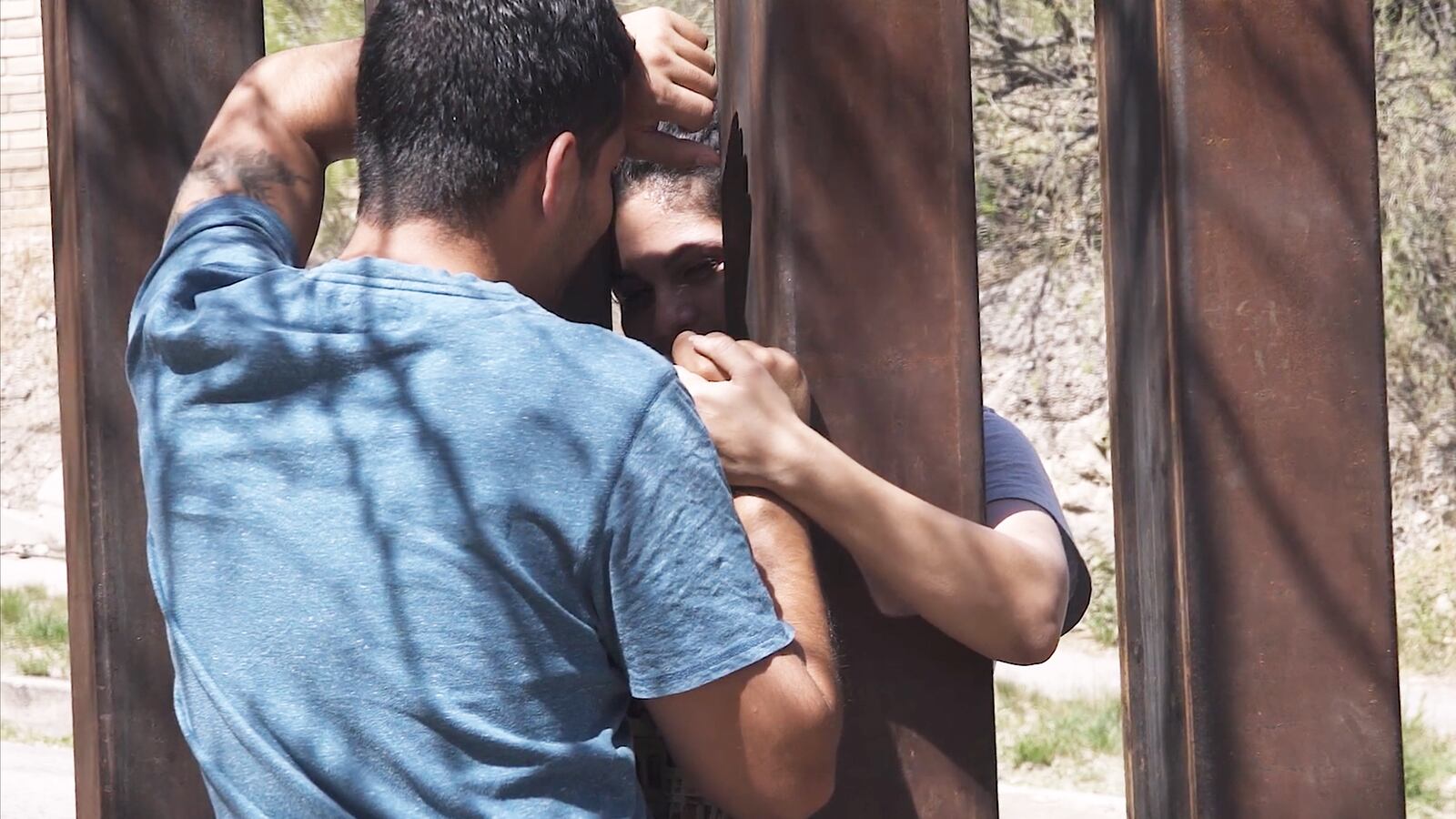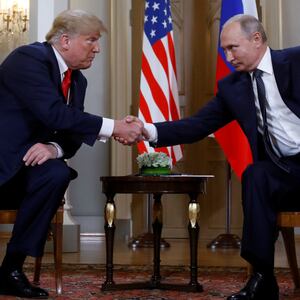PARIS — Bill Gentile has done a brave thing. After decades as a war photographer and more recently teaching and mentoring young journalists, he decided it was time to try to explain the world to people in the United States by telling the stories of journalists on the front lines bringing home the news.
The result is a fascinating pilot for a series called, appropriately, “Freelancers,” screened recently for students and professionals at the Overseas Press Club of America in New York City, and followed by a frank discussion of what it takes to compete in today’s news environment.
With headlines dominated by Donald Trump and an internet that rewards frivolity over humanity, foreign news from any source is fighting an uphill battle for attention. As freelancer Sulome Anderson put it in the discussion after the film, “You are competing with cat memes.” Journalists anywhere are “competing with the entire internet,” she said, and while it’s easy to talk about catching people’s eyes with original and unusual coverage, “their eyes are on a million different things now.”
Monetary rewards are low, risks can be very high, and security is sketchy. “There’s a lot of ways in which this industry can get people killed,” said Anderson. When the so-called Islamic State beheaded freelancer James Foley in 2014, the atrocity brought that fact home — and made it still harder for independent journalists to get assignments. Editors didn’t want to assign people to their deaths, or to be kidnapped.
Of course, that much always has been true. (Sulome is the daughter of Terry Anderson, held hostage by Hezbollah in Lebanon for six and a half years.) But there was the idea, at least, when Gentile and I were colleagues in Central America in the 1980s, that the big news organizations would move heaven and earth to keep us alive and at liberty. Now, not so much.
So, why do freelancers do what they do? That’s the question Gentile keeps asking in the course of his film, which is a little reminiscent of work by the late Anthony Bourdain, who was a great journalist in his own particular way. In this case, rather than focusing on exotic cuisine as a window onto parts unknown, Gentile takes a more frontal approach. He follows reporters, photographers and videographers as they cover stories in Mexico that continue to cry out for understanding.
Gentile follows Janet Jarman, who is making an extraordinary documentary about midwives, and who talks with tears in her eyes about the personal sacrifices of a freelancer, including relationships. But thanks to a grant from a foundation, she is able to show a side of life, and birth, that feels important to her.
A young American couple, Meghan Dhaliwal and Dominic Bracco, talk about struggling to make a living as independent journalists. What do they get out of this? “The world,” she says. “You get total freedom,” he says.
Gentile looks at the changes to journalism wrought by technology and the collapse of the traditional business models, and shows just how important fixers are to the work of foreign correspondents, whether freelance or staff. He touches all the bases, and tells many truths about those working hard to tell, as he writes with a capital T, the Truth.
But the most dramatic sequences are at the border, reporting alongside freelance writer Ioan Grillo and freelance photographer Patrick Tombola in the deadly streets of Nogales, Mexico, on the Arizona border. Here are the tunnels excavated by drug smugglers, there are the safe houses used by human traffickers, here is a border barrier made of heavy railroad track but porous as a picturesque split-rail fence in the Virginia countryside.
Grillo, author of the books El Narco and Gangster Warlords, has been covering the border for more than 15 years for several different media. He’s learned that with the border tightening even under the Obama administration it was no longer possible for individuals to try to make it across by themselves. They had to pay traffickers — called coyotes or polleros — and the traffickers paid the cartels, who now control the frontiers. Try to get around that system and “people are going to beat the hell out of you or kill you,” Grillo tells Gentile. “The migrant industry is now controlled by cartels.”
Gentile asks Grillo, “Do you think that people understand what real journalists do? What’s your perception of what they perceive?”
“I’m thinking about the story itself,” says Grillo as they stand beside the wild frontier between Mexico and the U.S. “There is an issue with the United States border, with undocumented workers, with cartels, with smugglers, these are real issues. But what I want to get across — a lot of it is the real human stories. So when you go to these shelters and you see people who are human beings who have had tough lives, who have lived tough lives, and you imagine what they go through, and you see people just coming out of incarceration, being deported and trying to send money back to their families to feed their children — these are the human stories. … They are issues filled with humanity these stories, the humanity of these people. I just want to do these things from my heart, and do good work.”
Journalists are anything but enemies of humanity. They are its voice. But humanity, as Sulome Anderson pointed out, is a hard sell, and Gentile’s series on freelancers around the world has not yet sold.
Summing up at the Overseas Press Club event, Gentile reminded the audience that the work foreign correspondents do — and most of them are freelancers these days — is “our ticket to participate in the global conversation.”
One only wishes that more people were listening.







